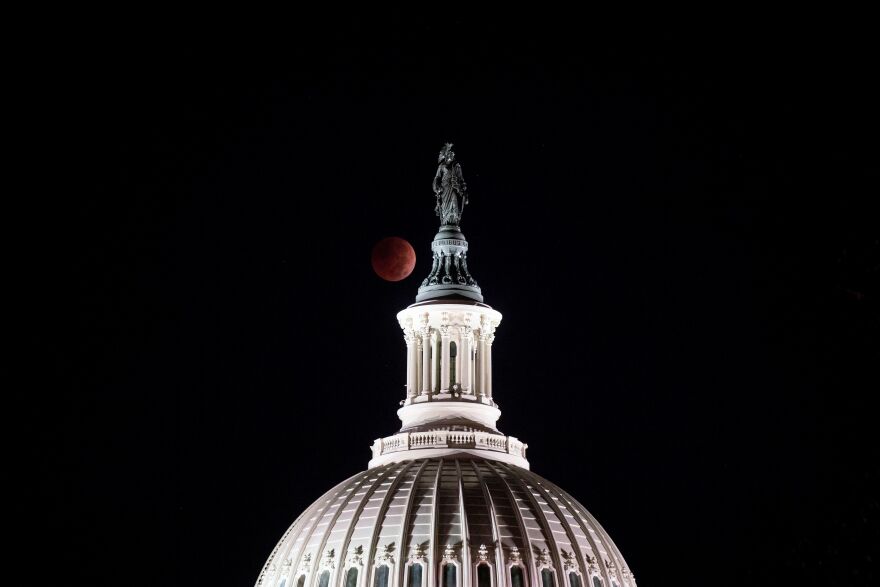Updated November 8, 2022 at 10:53 AM ET
For about an hour and a half on Tuesday morning, the moon appeared a deep shade of red — an astronomical delight for many, or perhaps an Election Day omen, depending on who you ask.
Across Asia, Australia and the Americas, people woke up early and stayed up late to take in the planet's last full lunar eclipse until 2025.
The initial phase of the eclipse began at 3:02 a.m. ET, according to NASA. Just over an hour later, the partial eclipse began — when, to the naked eye, it looks like a bite was being taken out of the moon. The lunar disk entered totality at 5:17 a.m. ET and lasted for about 90 minutes.
The eclipse could be viewed across much of North America, South America, Asia and Australia.
A lunar eclipse happens when the sun, Earth and moon align. During a full lunar eclipse, the moon falls completely in the Earth's shadow.
The phenomenon causes the moon to appear red, often nicknamed a "blood moon." During a lunar eclipse, what little sunlight that's left passes through Earth's atmosphere to get to the moon. The more cloudy or dusty the atmosphere is, the redder the moon looks.
"It's as if all the world's sunrises and sunsets are projected onto the Moon," NASA said.

Lunar eclipses typically happen at least once a year, but the next total lunar eclipse won't take place until March 14, 2025. There will be partial lunar eclipses before then, according to NASA.
Copyright 2022 NPR. To see more, visit https://www.npr.org.

